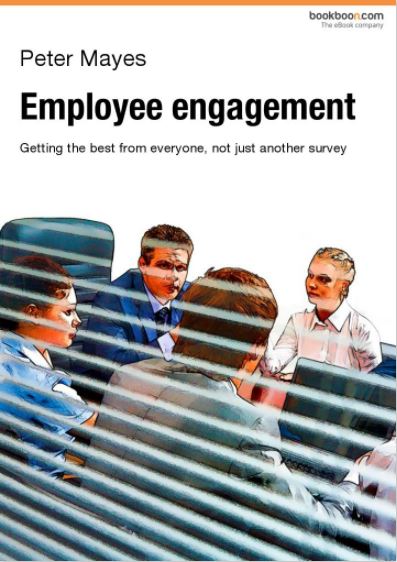Employee Engagement: Organisational Brain Washing or Enlightenment?

Over the years there have been many slogans, trends and life boats for organisations and some of them have even worked, but given the overall failure rate of most quality improvement, continuous improvement and company initiatives, a lot has been said and not much done.
Based on a history of how organisations have developed their relationship with employees either driven by a wish to grow or a wish to survive, employee engagement has morphed into a whole thing in itself.
Employers want well motivated, creative, learning and flexible employees. Employees want a workplace that uses their skills, recognises them as human beings and enables them to succeed at work and have a great life. Is this really too difficult for employers to facilitate and employees to work with?
Employee engagement can transform companies and lives
When it works, employee engagement transforms companies and transforms lives. However, sometimes organisations are crushed by dogma and bureaucracy; they have a process for everything except a process that works. So, whose responsibility is it for employee engagement to be a success? Well, it’s everyone’s.
Engagement is based on the values of the organisation matching the values of the employee; that leaders are engaging, and that contributions are valued and respected. A frequently conversation around the water cooler rings with the pleas for a simpler time when decisions were easy and one solution would fit all – even though it rarely did.
You may well have heard stressed and exasperated managers say words to this effect “My job would be really easy if all employees did as they were told and each sang the company song.” Well would it?
Some say that engagement will go up, but will it?
The age divisions within organisations will cause even more complexity and lead to the difficulty in managing the diversities of age, experience and expectation. All that might be true however these situations in themselves present opportunities.
The trends seem to be saying:
- Work life balance is now morphing into work life blend
- People analytics will grow
- Technology will focus on employees
Working differently without labels: no baby boomers, millennials or x-ers; just people with energy, creative passion and purpose. Each stage in employees’ working lives presents challenges for them and their employer, so it’s different strokes for different folks.
Flexibility and responsiveness is the key
When starting a career, we bring enthusiasm, energy and enquiry. When maintaining a career, we show expertise and breadth of knowledge as we climb of the ladder. When finishing a career, we offer reflection, wisdom and legacy.
Organisations must consider that employees are people first. They join and stay with an organisation for a multitude of reasons and it’s by harnessing the talents each possesses that an engaging organisation can be born and grow.
Peter Mayes’ eBook Employee engagement: Getting the best from everyone, not just another survey explores where employee engagement has come from, what helps it to work, how to do it and where it is going.
Have a look at the eBook and download it for further reading:
Themes of the eBook include:
- What’s the difference between engaging and engagement?
- What characteristics do engaging leaders have?
- What’s the benefit of being an engaging leader an inspirational mentor and dynamic coach?
Flexibility openness and creativity will be the key competencies for the future.
For more articles on “employee engagement”, have a look at these three:
- Employer Branding: Why employee engagement is important for any business
- How a Flexible Approach Ensures Your Employee Engagement Programme is Truly Engaging
- 3 Essential Ingredients for Employee Engagement
[bookboon-recommendations id=”21077c84-16cd-48ad-bf32-10ce336ebce9″ title=”You might also find these books interesting:”]





